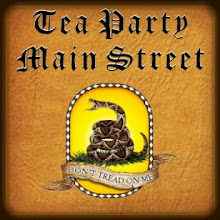Cash Transactions Banned by Louisiana: Jindal Government Takes Private Property Without Due Process
by Thad D. Ackel, Jr.
This summer, the State Legislature and Governor of Louisiana passed a law that bans individuals and businesses from transacting in cash if they are
considered a “secondhand dealer”. House Bill 195 of the 2011 Regular Session (Act 389) broadly defines a secondhand dealer to include “… Anyone, other than a non-profit entity,who buys, sells, trades in or otherwise acquires or disposes of junk or used or secondhand property more frequently than once per month from any other person, other than a non-profit entity, shall be deemed as being in the business of a secondhand dealer. ” The law then states that “A secondhand dealer shall not enter into any cash transactions in payment for the purchase of junk or used or secondhand property.
Payment shall be made in the form of check, electronic transfers, or money order issued to the seller of the junk or used or secondhand property…” The broad scope of this definition can essentially encompass everyone; from your local flea market vendors and buyers to a housewife purchasing goods on ebay or craigslist, to a group of guys trading baseball cards, they could all be considered secondhand dealers. Lawmakers in Louisiana have effectively banned its citizens from freely using United States legal tender.
The law goes further to require secondhand dealers to turn over a valuable business asset, namely, their business’ proprietary client information. For every transaction a secondhand dealer must obtain the seller’s personal information such as their name, address, driver’s license number and the license plate number of the vehicle in which the goods were delivered. They must also make a detailed description of the item(s) purchased and submit this with the personal identification information of every transaction to the local policing authorities through electronic daily reports. If a seller cannot or refuses to produce to the secondhand dealer any of the required forms of identification, the secondhand dealer is prohibited from completing the transaction.
This legislation amounts to a public taking of private property without due process or compensation. Regardless of whether or not the transaction information is connected with, or law enforcement is investigating a crime, individuals and businesses are forced to report routine business activity to the police. Can law enforcement not accomplish its goal of identifying potential thieves and locating stolen items in a far less intrusive manner? And of course, there are already laws that prohibit stealing, buying or selling stolen goods, laws that require businesses to account for transactions and laws that penalize individuals and businesses that transact in stolen property. Why does the Louisiana State Legislature need to enact more laws infringing on personal privacy, liberties and freedom?
Read Full Article
Tea Party Main Street Home

















No comments:
Post a Comment